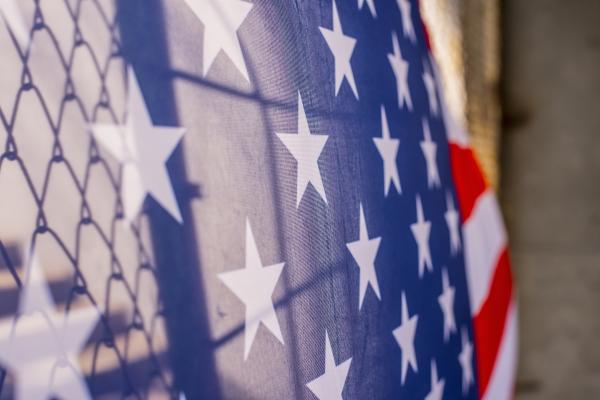We are living in historic times. The Confederate flag that was placed on the South Carolina Capitol dome 54 years ago to protest the civil rights movement has finally come down. The U.S. Supreme Court ruled last month that victims of housing discrimination do not have to show intentional bias, and the court struck down state bans on same-sex marriage because they violated fundamental constitutional rights.
Victories in the battles against discrimination do not come easily or quickly, and they test our resolve to keep the faith during the lowest points of our struggles. While we celebrate the dismantling of institutional discrimination, we remain keenly aware of important challenges ahead with regard to discrimination — even hatred — against immigrants.
Many of us engaged in the long fight for immigration reform may be questioning whether we are at one of our lowest points, whether we can influence the negative political and legal trajectories of the recent immigration debates. The answer to both is “yes.”
While immigrants remain under attack, the immigration movement is strong and growing stronger. In New Orleans, where the U.S. Fifth Circuit Court of Appeals heard arguments last week in a case brought by conservative politicians against President Obama’s 2014 immigration actions, hundreds of immigration advocates gathered outside the courthouse and across the nation with this direct message: We are ready to fight for immigrants’ rights in the courtrooms, in our communities, and at the ballot box.
In the politically driven lawsuit, led by the state of Texas, a Texas district court temporarily halted the start of the Deferred Action for Parents of Americans and Lawful Permanent Residents (DAPA) and the expansion of the 2012 Deferred Action for Childhood Arrivals (DACA) initiatives.
The Fifth Circuit previously denied the request by President Obama’s lawyers to let DAPA and expanded DACA take effect, and the latest hearing by the same court this past Friday is not expected to relieve the uncertainty left by the immigrant community. The Fifth Circuit panel weighing the appeal has two of the same judges that previously denied DOJ’s request to halt the injunction temporarily. We expect this fight to go to the U. S. Supreme Court.
While DAPA and expanded DACA await a final verdict, other significant elements of the president’s immigration executive actions are being implemented. For example, the highly successful 2012 DACA program, which has drawn more than 650,000 young immigrants, remains in effect. Hundreds of thousands of DACA-eligible youth, who have yet to apply, are still eligible to, and nearly 90,000 youth become eligible every year.
Likewise, the Department of Homeland Security is poised to issue regulations that would broaden access to the so-called “stateside waiver” process, allowing more individuals sponsored by family members to be reunited.
At the same time, the immigrant community is not remaining idle as civic engagement activities accelerate.
Latino and immigrant civic engagement groups are already holding workshops and distributing application forms to turn qualifying legal immigrants into citizens and citizens into voters.
Not lost on advocates is an important electoral fact: There are almost 600,000 children of DAPA parents who currently have the right to vote. Assuming the next Congress does not enact sensible immigration reforms, the number of U.S.-born citizens of DAPA parents who will be eligible to vote in 2020 is 1.7 million, according to the USC Dornsife Center for the Study of Immigrant Integration.
Meanwhile, the U.S. Department of Homeland Security is preparing a citizenship awareness media campaign in the 10 states that are home to 75 percent of the overall LPR population. Options for paying naturalization fees also are being explored.
Whether the courts rule on the right side of history remains to be seen, but the power of our movement is greater than the sum of any anti-immigrant judgment. As history has shown us, change is inevitable. The power of our voices and our votes will eventually prevail and force progress. We will not deviate from a future in which all immigrants are treated with justice and respect.
Nor will we lose faith. As President Lincoln advised, "Let's have faith that right makes might; and in that faith let us, to the end, dare to do our duty as we understand it."
Got something to say about what you're reading? We value your feedback!

